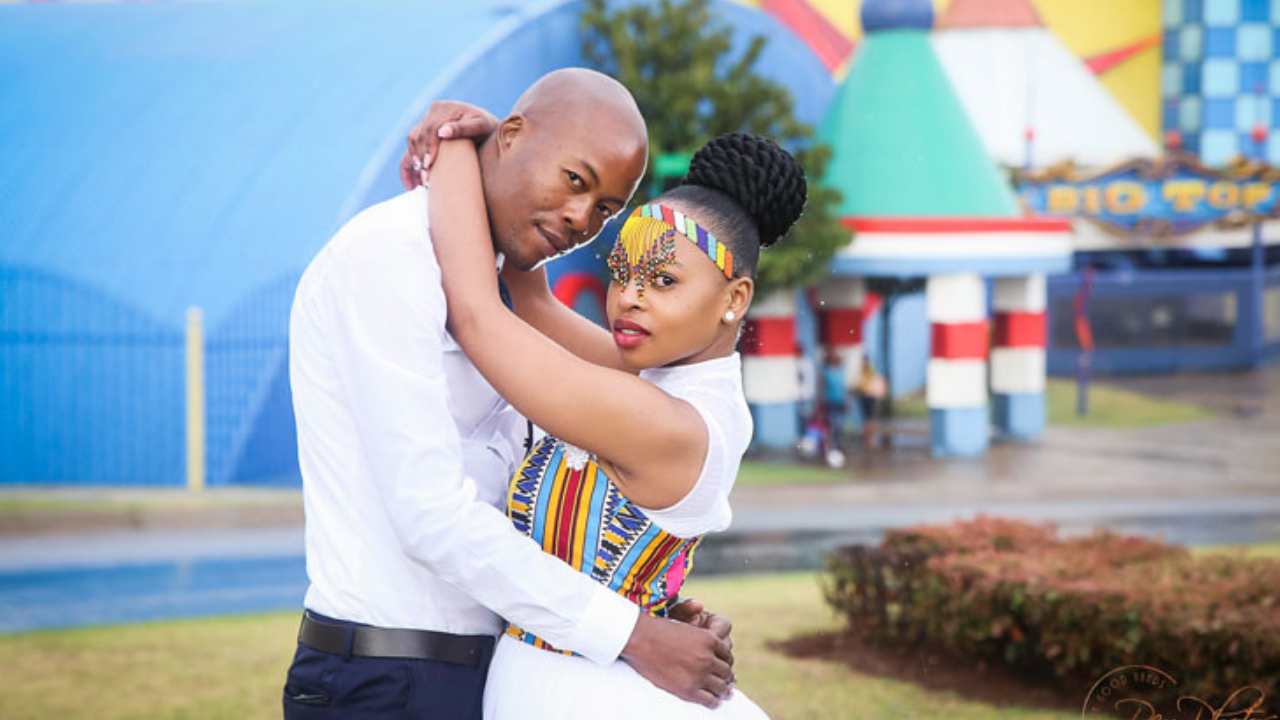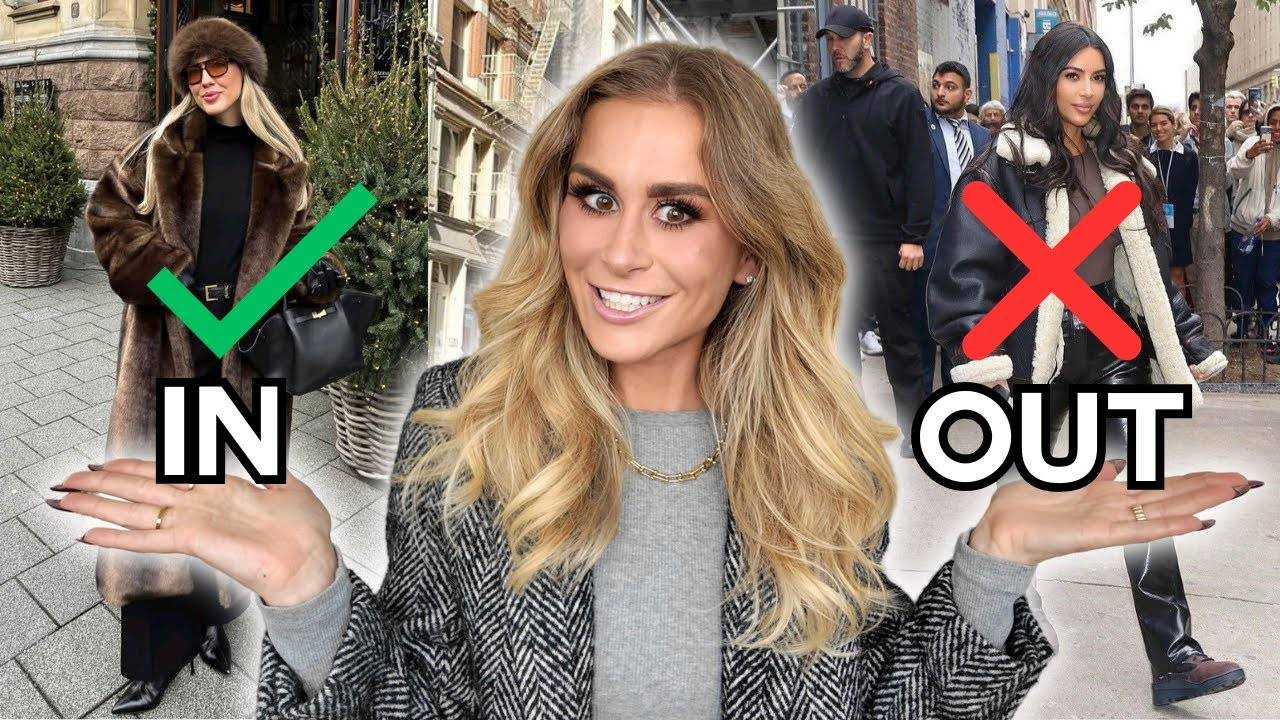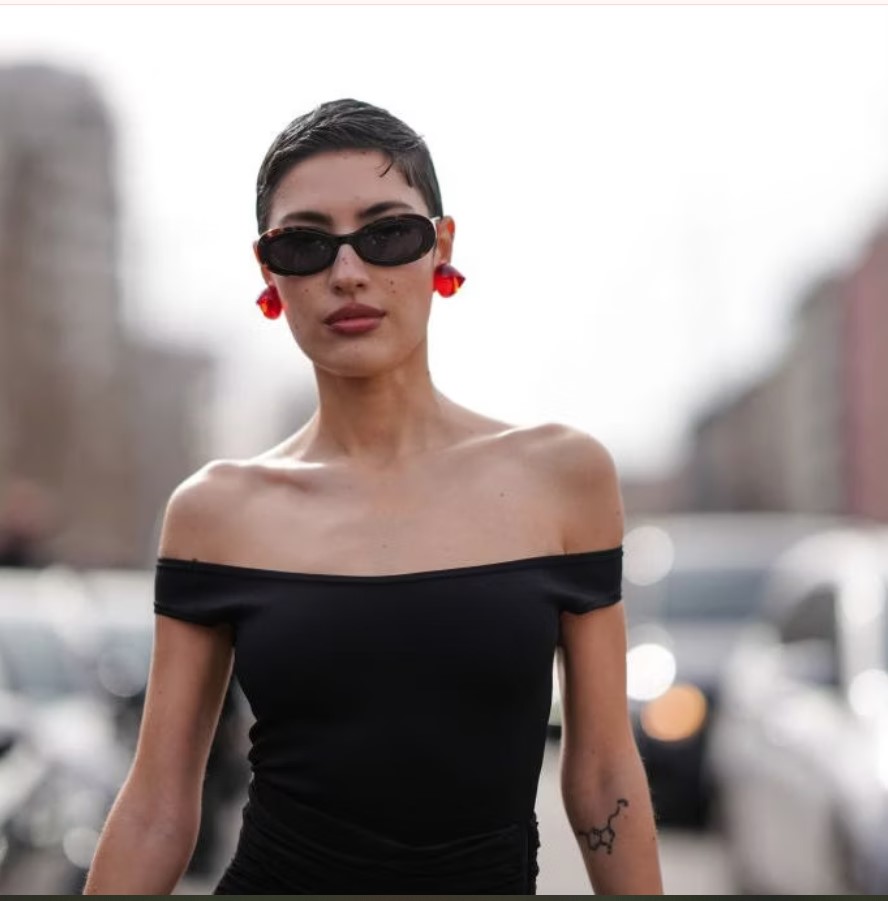A South African wedding steeped in Zulu culture is never complete without its iconic attire. Clothing here is more than fashion, it’s heritage, storytelling, and symbolism woven together. From the bride’s skirt to the groom’s headband, every detail carries meaning, turning the day into a celebration of both love and ancestry.
The Significance of Attire
In Zulu tradition, garments signal life transitions and convey powerful messages. The bride’s outfit shows her new marital status, while the groom’s look reflects pride and strength. Beadwork is especially symbolic, with colors acting as a silent language:
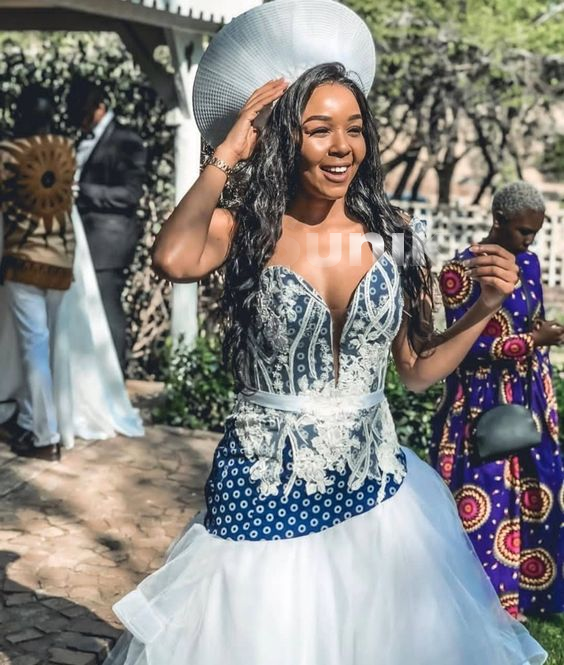
- White – purity and hope
- Blue – fidelity and loyalty
- Red – love and passion
- Yellow – wealth and status
- Black – marriage and new beginnings
- Green – contentment and growth
Wearing these colors isn’t just decorative, it’s a way of telling a story without words.
Traditional Looks for the Bride and Groom
The bride is easily recognized by the isidwaba, a blackened leather skirt that protects and honors her transition into married life. She often completes her look with the isicholo, a wide circular hat reserved for married women, along with layered bead necklaces, cuffs, and anklets that shimmer with meaning.
The groom takes on elements of the warrior. Animal hides form his skirt or shoulder drape, while the umqhele (fur or leather headband) marks pride and strength. Beaded chest bands, armbands, and sometimes ceremonial props like shields and spears add authority to his presence.
Blending Tradition with Modern Style
Many couples today choose to blend cultural attire with contemporary fashion. Some begin the day in Western-style gowns or suits and later change into traditional regalia, while others prefer a seamless fusion of the two.
Brides often replace heavy hides with silk or satin skirts shaped like the isidwaba, decorated with bead trims for elegance.
The traditional hat can be reimagined as a lighter headpiece or crown, maintaining symbolism without weight.
Grooms pair hide wraps with tailored jackets or shirts that feature beaded panels, creating a sophisticated fusion.
Faux hides and modern fabrics are also common, making outfits lighter and more practical while retaining authenticity.
Coordinating as a Couple
What makes these celebrations visually stunning is how the couple’s attire complements one another. The outfits rarely match exactly, but they share motifs and colors that tie them together. If a bride’s beadwork features blue and white patterns, the groom might echo those colors in his headband or arm cuff. This subtle harmony symbolizes unity and makes for striking photos.
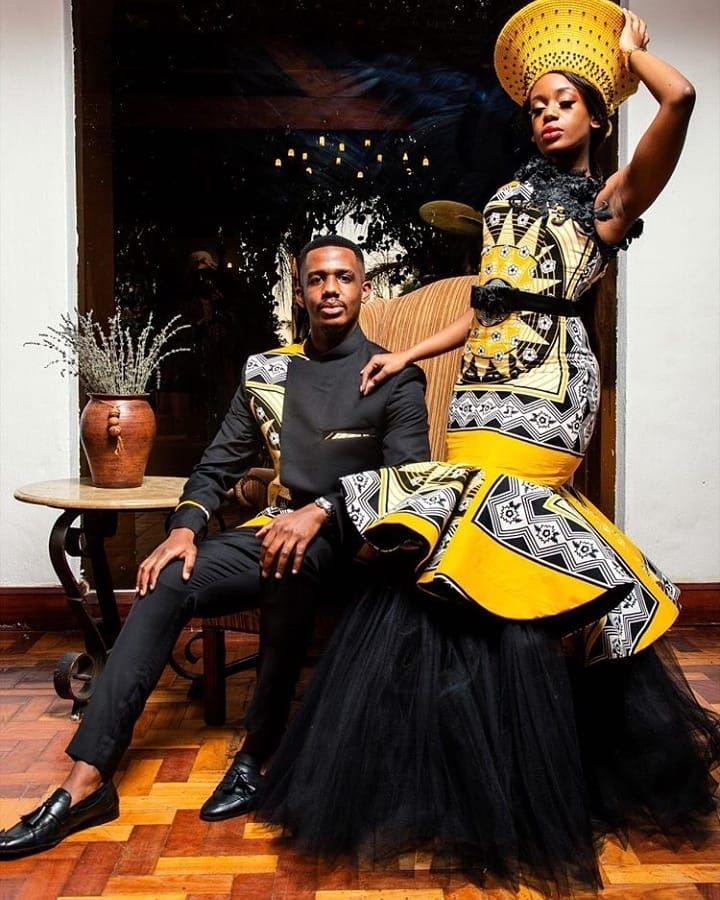
Outfit Changes Throughout the Day
A single outfit is rarely enough for such a vibrant celebration. Most couples prepare more than one look to suit the flow of the day:
- Ceremony attire: often a Western gown or suit, or a lighter traditional look.
- Cultural attire: the most elaborate regalia, showcasing heritage and symbolism.
- Reception or dance attire: simplified outfits designed for comfort and movement.
Each change represents a new phase of the celebration, from solemn vows to spirited dancing.
Finding the Right Outfits
Authenticity matters, and sourcing the right attire can make all the difference. Many couples work with local artisans in KwaZulu-Natal who specialize in beadwork and traditional designs. Durban boutiques also offer collections that blend modern bridal trends with heritage dress.
For those outside South Africa, options include:
- Online artisans offering handcrafted beadwork and headpieces
- Cultural fashion houses specializing in African attire
- Designers who create fusion pieces with modern fabrics and trims
- Ordering well in advance is crucial, since beadwork and custom garments require time to perfect.
Final Thoughts
Whether you choose full regalia with leather skirts and ceremonial headpieces, or a fusion look with modern fabrics and bead trims, the goal is to honor tradition while expressing your individuality. Every bead, every stitch, and every shared color tells a story that connects the past with the future.
Post Comment
Be the first to post comment!
